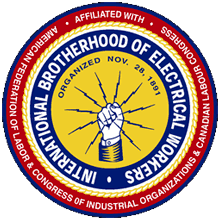June 28, 2013
By Marc Bussanich
Washington, DC—The Passenger Rail Investment and Improvement Act of 2008 will expire in September unless Congress can agree on a new reauthorization. The chairman of a House subcommittee on railroads said the committee is dedicated to rail reauthorization, but the House Appropriations Committee wants to reduce rail funding from $1.4 billion in 2013 to $950 million in fiscal year 2014. Watch Video
Joseph C. Szabo, administrator for the Federal Railroad Administration, testified before the subcommittee on Thursday by emphasizing that the federal government has to take a leading role in rebalancing the nation’s transportation system after decades of federal underinvestment in rail as Congress tries to devise a national rail policy.
The FRA is requesting a five-year, $40 billion budget that would build on the successes of PRIIA, which include strengthening federal-state partnerships to invest in and operate short-distance and long-distance Amtrak routes such as the construction of high-speed train service between Chicago and St. Louis.
The proposed budget differs from previous budget requests in that it aims to invest resources to mitigate congestion on some of the country’s most heavily travelled corridors, such as the Northeast Corridor, but also invests in research and development to nurture a domestic rail supplier industry.
But there is strong opposition to the FRA budget request. Jeff Denham (R-CA), chairman of the House Subcommittee on Railroads, said in his opening remarks that FRA’s multi-billion dollar proposal is a “pie-in-the-sky vision” and unrealistic given the House Appropriations proposal.
Congressman John Mica (R-FL) and former chairman of the subcommittee, challenged Mr. Szabo on whether the FRA would entertain privatization of passenger rail, particularly Amtrak’s long-distance routes. Mica bellowed that long-distance routes are losing money and are costing taxpayers millions of dollars and he ridiculed Amtrak’s service along the Northeast Corridor as a joke compared to international high-speed rail service.
“Are you aware that the average speed from Washington, D.C to New York City on the Acela is less than 90 mph, while most high-speed trains in the world are averaging 140 to 150 mph,” said Mica.
Mica then asked his staff to distribute a document to the witnesses showing the top three money-losing long-distance routes in the country.
“It’s getting worse rather than better and you told me you wouldn’t want to put up those routes for competition,” Mica said to Szabo.
In an interview, Mr. Szabo said that the FRA is committed to long-distance routes because those routes play an important public service that provide public benefits by connecting rural communities to the broader transportation network.
“The private sector looks for certainty. And until we have a predictable, sustainable source of funding for rail investments, like we do for every other transportation mode, there’s never going to be an opportunity for privatization of operations,” said Szabo.
Congressman Jerrold Nadler (D-NY), who is a member of the Subcommittee on Railroads, was at a presser on Monday at 7 World Trade Center and he told LaborPress that he’s skeptical of a multi-billion rail reauthorization will pass in the House because the House is only focused on cutting spending.
“The Republican majority in the House is certainly hostile to any government expenditure. All they care about is cutting, cutting, cutting, way beyond what we should be doing in my opinion,” said Nadler.
Follow Marc Bussanich on Twitter marc@laborpress.org



